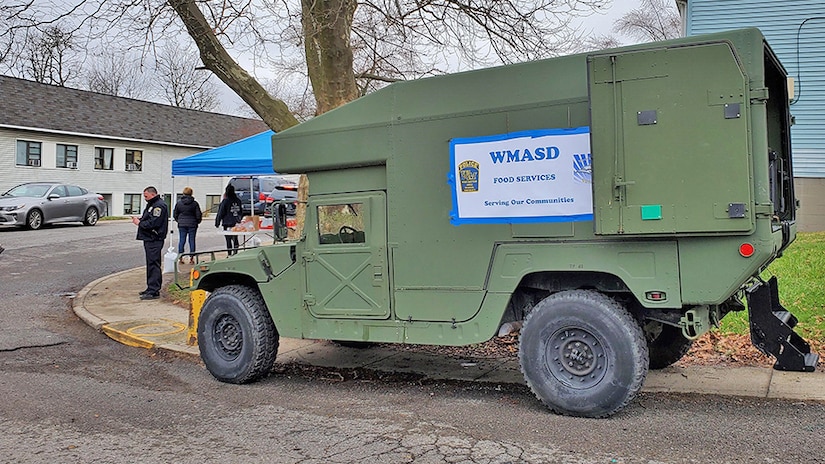April 17, 2020 | BY Tim Hoyle
One organization's excess is often another's dire need.
Sometimes it's not so much a matter of shortages as it is a matter of
distribution.
Government organizations and nationwide hospitals are getting
valuable assets to confront the coronavirus pandemic from a Defense Department
asset that manages the military's excess equipment.
From Battle Creek, Michigan, Defense Logistics Agency
Disposition Services personnel oversee a global operation taking in equipment
that's unneeded or unwanted because it's either being replaced by newer
equipment or it's just worn out.
Since a national emergency was declared as a result of the
COVID-19 pandemic, the DLA has provided almost 50,000 excess items – $2 million
worth – such as personal protective equipment, beds, cots, ventilators and
pouches for bio-hazard and human remains. Lists of available excess medical
equipment are being provided to the DLA Headquarters COVID-19 Task Force, which
works with military commands, the Federal Emergency Management Agency and the
U.S. Department of Health and Human Services to determine where the items
should go.
DLA Disposition Services has also recalled items it
previously turned over to public sales contractor IronPlanet, including 47,000
N95 masks retrieved from Letterkenny Army Depot in Chambersburg, Pennsylvania.
DLA partnership with the Defense Security Cooperation Agency and the Defense
Threat Reduction Agency has helped make other equipment available, as well.
While much of DLA Disposition Service's global workforce is
now teleworking, almost 300 employees are still reporting to their regular
worksites to process property turn-ins.
''I lead a wonderful team of professionals — property
disposal specialists, environmentalists, contracting specialists, inventory
management specialists and others operating in field locations across 42
different states and 15 countries — sometimes working in dangerous places,''
said DLA Disposition Services Director Mike Cannon. ''I think it's a great
place to work with wonderful people who execute a mission daily that is always
challenging and demanding, even when things are 'normal'.''
Field locations remain open although hours and operations
may be reduced, he added. Employees continue to receive items ranging from
ordinary household and office equipment to specialized items like uniforms,
sleeping bags and tents. Material in good condition is first made available to
other military units, then to other federal agencies like FEMA, followed by
state agencies and local governments.
''We also have programs that Congress has, in some form of
legislation, told us to operate to give priority to military excess to
different groups like the Law Enforcement Support Office, the firefighter
program managed by the U.S. Forest Service and an educational support effort
called Computers for Learning,'' Cannon said.
LESO gives law enforcement agencies access to excess items
like vehicles, tools, computers and other items needed to help protect
citizens. Recipients pay only transportation costs plus maintenance or
conversion costs.
''A good example are the former military vehicles being used
by the police department of the West Mifflin Area School District in
Pennsylvania to deliver food to students staying home because of school
closures,'' Cannon said.
The West Mifflin Area School District in Pennsylvania uses
former Massachusetts National Guard trucks as school lunch delivery vehicles
during the COVID-19 pandemic.
Likewise, DLA helps fire departments receive excess Defense
Department property such as vehicles and tools through the Forest Service.
Schools have also received excess information technology items for many years,
some of which teachers may be using for online learning during the pandemic.
''We have outfitted hundreds of schools, and it's really
enlightening because they will typically send us a picture of the kids at the
computers,'' Cannon said. ''So we get to see that DLA can enhance education
across the nation by donating excess computers to a school district that might
not otherwise be able to afford it without raising taxes.''
(Tim Hoyle is with DLA Disposition Services)









No comments:
Post a Comment